Introduction
This policy relates to the way in which ASHM deals with complaints by:
- service users about its goods and services
- ASHM members
- other ASHM stakeholders.
All ASHM personnel (including governing body members, staff, volunteers, representatives, contractors, visitors to projects and partners) are expected to comply with the principles and reporting requirements specified in this policy.
This policy refers to complaints originated from the general public, agencies, providers, partners and stakeholders in Australia and overseas.
Purpose
ASHM welcomes constructive critical feedback on its activities, as well as formal complaints, to help improve delivery of services to service users.
A negative comment about any aspect of ASHM services is not a complaint unless the person making the complaint indicates this and follows the procedures in this policy for making a complaint.
A negative comment in an informal setting, such as an anonymous negative comment on an evaluation sheet at a training course, is not a complaint for the purpose of this policy.
Definitions
Complaint means an expression of dissatisfaction made to ASHM, related to its products or services, or the complaint handling process itself, where a response or resolution is explicitly or implicitly expected.
Complainant means a person, organisation or its representative, making a complaint.
Enquiry means a request for information or an explanation
Feedback means opinions, comments, suggestions and expressions of interest in the products or services of ASHM
Stakeholder or interested party means a person or group having an interest in the performance or success of ASHM
Policy
Principles
Accountability: ASHM provides information to all stakeholders, including to members of the communities where its activities are implemented, about the reporting and complaints procedure.
Accessibility: ASHM’s External Complaints policy is readily accessible on ASHM’s website. ASHM provides information in a clear and easily understandable manner in appropriate forms and through appropriate media.
Confidentiality: ASHM’s External Complaints policy provides a safe and discrete point of contact for stakeholders in Australia and countries where ASHM work is conducted, to raise concerns or complaints about the organisation.
Fairness: ASHM ensures that requirements for filing a complaint take into consideration the needs of the most vulnerable and considers minority and disadvantaged stakeholders.
Responsiveness: ASHM’s complaints process is responsive. Key steps undertaken in the management of complaints as they are received, include how a complaint is identified, confirming and recording details of complaints received, and expected responsiveness. (See Procedures below)
People-focussed Approach: ASHM commits to providing appropriate assistance and referrals to survivors (e.g. providing assistance to complainants might include medical, social, legal and financial assistance, or referrals to such services.)
No retaliation: a person who, in good faith, reports misconduct or suspected misconduct will not suffer retaliation.
ASHM’s External Complaints policy is consistent with its Prevention of Sexual Exploitation, Harassment and Abuse Policy and its Child Protection Policy. It recognises:
- Gender equality
- Zero tolerance of inaction on incidents of SEA
- Victim/survivor centred responses
General policy statements
ASHM is committed to efficient and fair resolution of complaints by people in the organisation at all levels. ASHM acknowledges customers’ and stakeholders’ right to complain and we positively invite feedback from customers and stakeholders about the goods and services we provide.
ASHM will provide a safe and discrete point of contact for stakeholders in Australia and countries where ASHM work is conducted, to raise concerns or complaints about the organisation.
In handling complaints, we will be fair to both the complainant and the service or person against whom the complaint is made. Complainants will be treated courteously.
ASHM will endeavour to provide appropriate assistance and referrals to complainants/survivors which may include:
- medical
- social
- legal and
- financial assistance or
- referrals to such services.
Any complaint or dispute about an aspect of ASHM’s operations or practices will be dealt with confidentially, effectively and with the appropriate degree of urgency.
All complaints concerning Child Protection and Prevention of Sexual Exploitation, Abuse and Harassment must be reported immediately to the ASHM CEO and follow reporting guidelines described in those policies.
All complaints will be managed to ensure there is procedural fairness to all parties, there is no conflict of interest by either party, there is no victimisation or retaliation and confidentiality is assured throughout the process.
ASHM commits to:
- providing an induction on complaints handling to all personnel and partners to ensure they are equipped to understand and implement the policy, including expected standards of conduct;
- providing ongoing and refresher training as needed for all personnel and partners on a regular basis;
- developing communications materials about complaints handling, expected staff behaviours, and complaints processes for communities in appropriate language and media.
There is no fee for lodging a compliant or having it processed by Society staff.
ASHM is a signatory to the Code of Conduct for Australian aid and development agencies, which is administered by the Australian Council for International Development (ACFID). ASHM is committed to full adherence to the ACFID Code of Conduct.
As an ACFID Code of Conduct signatory, ASHM complies with policies that include child protection, non-development activity and conflict of interest.
ASHM welcomes inputs and feedback from all stakeholders. Comments should be directed to ashm@ashm.org.au
ASHM Board – Approved 29 Sep 2021

